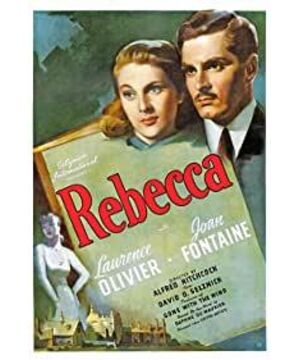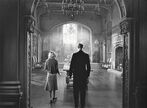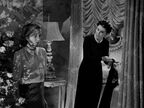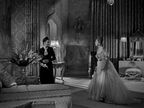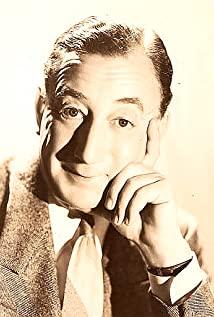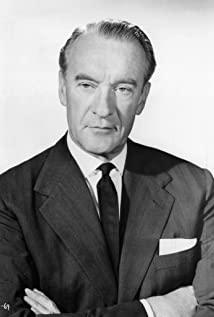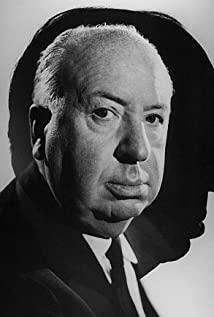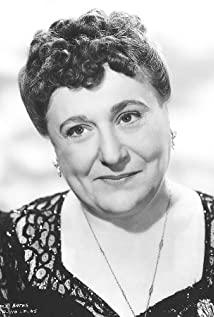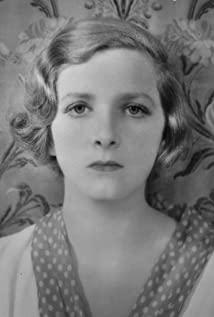In 1938, after finishing the filming of the last British film "Jamaica Inn" (Jamaica Inn), Alfred Hitchcock was accepted by Hollywood producer David Saznick ( David Selznick), along with his wife Alma and daughter Pat, came to the United States to prepare to shoot the movie "Titanic" based on the shipwreck of the same name. Although the filming plan for the film was eventually aborted for some reason, Hitchcock has since settled in Los Angeles and eventually became an American citizen. Before leaving the UK, Hitchcock had directed "The Skin Game", "Waltzes from Vienna", "The Man Who Knew Too Much" and "Thirty Twenty films including The Thirty-nine Steps and The Lady Vanishes (The Lady Vanishes), among which were filmed in 1934, "The Thirty-Nine Steps" and "The Thirty-Nine Steps" in 1935 "Stairs" have achieved great success. Hitchcock not only has a respected position in the British film industry, but also began to enjoy an international reputation. When David Saznick got in touch with Hitchcock, the latter was filming the film "Jamaica Inn" based on the novel of the same name by the British female writer Daphne Du Maurier. Nick himself is also busy making "Gone with the Wind." To be cautious, the two initially agreed to sign a cooperation plan for only one film. However, Hitchcock's work "The Missing Lady", which was released at the same time, achieved a global sensation. He even won the "New York Film Critics Award" in the United States. The shrewd Saznick changed his proposal accordingly and suggested that he Ou Kirk signed a long-term contract with his Saznik International Film Company. Hitchcock himself has always longed for working in a major Hollywood studio, thinking that "as far as movies are concerned, their (Hollywood) filmmaking methods and techniques are truly professional, and far exceed those of other countries", so The two hit it off, and Hollywood has since had a rare film master-although they have never awarded him the Oscar, which represents the highest level of American cinema. According to the plan, Hitchcock’s first film after arriving in Hollywood was supposed to be based on the famous shipwreck that occurred in the North Atlantic on April 14, 1912. Znik then informed Hitchcock that he had changed his mind and had bought the copyright to another novel, "Butterfly Dreams" (Rebecca) by the British female author Daphne Du Maurier. Out of love for Du Maurier (as mentioned earlier, his last film in the UK "Jamaica Inn" is adapted from Du Maurier’s novel, and according to Hitchcock himself: "When I When filming "The Missing Lady", it was possible to buy the copyright of "Butterfly Dream", but for me, it was too expensive.") Hitchcock agreed to Saznick's filming plan. The filming plan of "Titanic", which was stranded in 1938, was not implemented until 1953. That year, Jane Nicolasco put the story on the screen. This is the first version of "Titanic" as we know it— -"The Shipwreck in the Ice Sea". In 1997, James Cameron re-interpreted "Titanic" and won 11 statuettes in the 70th Oscars the following year. Together with "Ben-Hur", it became Oscar history The most award-winning film. Although these two films are also good-looking enough, as a fan of Hitchcock, it is still unavoidable to regret that I did not see the shipwreck of the century under the lens of the master. What we can imagine is only a description of Hitchcock. "If I come to shoot "Titanic", I will give a close-up of a rivet at the beginning, and then pull the camera back until the entire Titanic is pulled into the camera." As Hitchcock’s debut in Hollywood , "Butterfly Dream" is actually not a typical Hitchcock movie. In "A Dialogue between Hitchcock and Truffau", when the two talked about the film, Truffau (Francois) Truffaut) said: ""Butterfly Dream" is a story far from your style. It is not a thriller. There is no suspense in it. It is just a psychological story." Hitchcock himself also believes that "this is not a story." A Hitchcock-style film...the content is quite old-fashioned and quite outdated... "Butterfly Dream" is indeed a story lacking a sense of humor." Of course, considering his personal love for Daphne Du Maurier, that he once wanted to buy the copyright of "Butterfly Dream" by himself, we have reason to think that Hitchcock criticized these remarks of "Butterfly Dream". In fact, it is an angry statement-the real reason is probably related to the conflict with the producer David Saznick during the filming process. After "Thirty-Nine Steps" in 1935, Hitchcock, with his great success, already enjoyed absolute freedom in the British film industry and absolute control on the set. Throughout Hitchcock’s creative career, he has always felt that he needs to beware of actors, producers, and technicians, because he believes that as long as "any one of them has any minor negligence, or any subtle Willfulness will damage the integrity of the film." He does not allow anyone to question his authority. He has a famous conclusion that actors are all animals. An actor once asked him: "What is my motivation for playing this role?" Hitchcock replied: "The motivation is that I will pay you a salary." There is a story to illustrate his character: In 1951, Ray Raymond Chandler (Raymond Chandler) re-emerged after severing ties with Hollywood for five years and adapted the screenplay "Strangers on a Train" for Hitchcock, whether for Chandler or Hitchcock, This is the worst cooperation ever. Both are talented and accustomed to authoritarianism. This also caused the two to not listen to any opinions of the other when discussing the script, as if they were not talking about a movie at all. Chandler complained: "Since you have everything Okay, why are you calling me?" The relationship deteriorated so fast that every time Hitchcock came to look for Chandler, as soon as the car stopped, Chandler began to curse him: " This fat bastard got out of the car!" Two months later, Chandler was fired, and he firmly did not allow his name to appear in the script writer's signature of "The Train Strangers". This story happened in 1951, and the same story happened between Hitchcock and Saznick when filming "Butterfly Dream" in 1939. Like Hitchcock, Saznick is also a person with a strong desire for control. Although an independent producer, he hopes that he has absolute artistic control over "Butterfly Dream". In June 1939, he shot a telegram to Hitchcock, expressing his disappointment with Hitchcock's adaptation of the "Butterfly Dream" script, and pointed out his dissatisfaction point by point. At the beginning of the cooperation between the two people, there was a situation where the creative ideas were contrary to each other. As a result of the struggle, Saznick basically agreed to Hitchcock's control of the film, but he hoped that the film could be released in the same year as Gone with the Wind, so he asked Hitchcock to sign and agree to shorten the post-production time. It should be said that the final shot of "Butterfly Dream" still reached a very high artistic level. Hitchcock also showed his own style and characteristics, adding a lot of unique suspenseful details to the pure character conflict. , And won the Best Picture Award in the 13th Oscar Awards. However, it is clear that Hitchcock is angry with the constraints he has been subjected to during the filming process, and feels sorry for his failure to win the best director award of the year. "This Oscar is for producer Saznick. That year was 1940, and it was John Ford who won the Oscar for Best Director for "The Grapes of Wrath." He said to Truffau, "I have never won an Oscar." From this point of view, it is not difficult to understand why he has such a big prejudice against such an extremely successful film as "Butterfly Dream". Although his own point of view is: "I think the failed film turned out to be a classic and very profitable." However, it is undeniable that as Hitchcock's debut in Hollywood, "Butterfly Dream" He was successful both artistically and at the box office, which laid a solid foundation for his decades of dominance in Hollywood. As a result of the struggle, Saznick basically agreed to Hitchcock's control of the film, but he hoped that the film could be released in the same year as Gone with the Wind, so he asked Hitchcock to sign and agree to shorten the post-production time. It should be said that the final shot of "Butterfly Dream" still reached a very high artistic level. Hitchcock also showed his own style and characteristics, adding a lot of unique suspenseful details to the pure character conflict. , And won the Best Picture Award in the 13th Oscar Awards. However, it is clear that Hitchcock is angry with the constraints he has been subjected to during the filming process, and feels sorry for his failure to win the best director award of the year. "This Oscar is for producer Saznick. That year was 1940, and it was John Ford who won the Oscar for Best Director for "The Grapes of Wrath." He said to Truffau, "I have never won an Oscar." From this point of view, it is not difficult to understand why he has such a big prejudice against such an extremely successful film as "Butterfly Dream". Although his own point of view is: "I think the failed film turned out to be a classic and very profitable." However, it is undeniable that as Hitchcock's debut in Hollywood, "Butterfly Dream" He was successful both artistically and at the box office, which laid a solid foundation for his decades of dominance in Hollywood. As a result of the struggle, Saznick basically agreed to Hitchcock's control of the film, but he hoped that the film could be released in the same year as Gone with the Wind, so he asked Hitchcock to sign and agree to shorten the post-production time. It should be said that the final shot of "Butterfly Dream" still reached a very high artistic level. Hitchcock also showed his own style and characteristics, adding a lot of unique suspenseful details to the pure character conflict. , And won the Best Picture Award in the 13th Oscar Awards. However, it is clear that Hitchcock is angry with the constraints he has been subjected to during the filming process, and feels sorry for his failure to win the best director award of the year. "This Oscar is for producer Saznick. That year was 1940, and it was John Ford who won the Oscar for Best Director for "The Grapes of Wrath." He said to Truffau, "I have never won an Oscar." From this point of view, it is not difficult to understand why he has such a big prejudice against such an extremely successful film as "Butterfly Dream". Although his own point of view is: "I think the failed film turned out to be a classic and very profitable." However, it is undeniable that as Hitchcock's debut in Hollywood, "Butterfly Dream" He was successful both artistically and at the box office, which laid a solid foundation for his decades of dominance in Hollywood. In this way, it is not difficult to understand why he has such a big prejudice against such an extremely successful film as "Butterfly Dream". Although his own point of view is: "I think the failed film turned out to be a classic and very profitable." However, it is undeniable that as Hitchcock's debut in Hollywood, "Butterfly Dream" He was successful both artistically and at the box office, which laid a solid foundation for his decades of dominance in Hollywood. In this way, it is not difficult to understand why he has such a big prejudice against such an extremely successful film as "Butterfly Dream". Although his own point of view is: "I think the failed film turned out to be a classic and very profitable." However, it is undeniable that as Hitchcock's debut in Hollywood, "Butterfly Dream" He was successful both artistically and at the box office, which laid a solid foundation for his decades of dominance in Hollywood.
View more about Rebecca reviews


